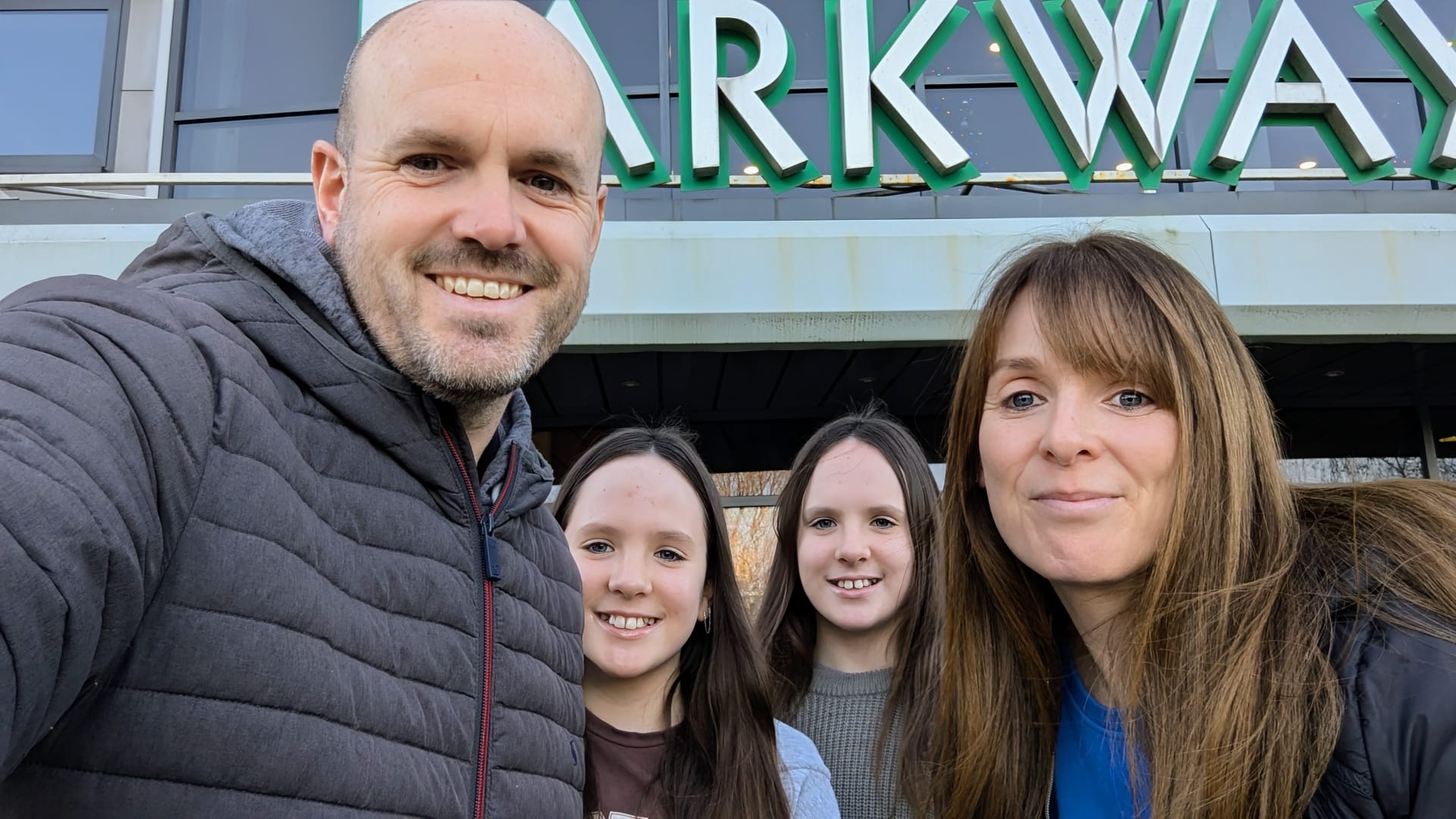Story
UPDATE
"Megan's courageous journey began with a life-saving bone marrow transplant from her sister Lucy. Their bravery and resilience inspire us all. Though the transplant was a success, the road to recovery is long and challenging.
The Rayner's Runners team has been training tirelessly, participating in events to support Megan and her family, as well as others facing similar battles. Now, we're calling on you to join us in raising awareness and funds for the Aplastic Anemia Trust. On June 1st, most of the team will be taking on the Grimsby 10k to support Megan and raise vital funds for AAT. Every step counts, and every donation makes a difference. Will you help us make a difference for families like Megan's?
In November 2024, our dear friend, boss and colleague Chris and his wife Katie, received the devastating news that one of their twin daughters has a rare and life-threatening blood disorder called aplastic anaemia. Megan, aged 12 will undergo a stem cell transplant in January using bone marrow donation from her twin sister, Lucy. Both girls have demonstrated such courage and shown incredible resilience, while facing this challenging and difficult time at such a young age.
There are a team of us who would like to raise much needed funds for the aplastic anaemia Trust and more importantly raise awareness for this rare disorder.
What is aplastic anaemia?
Aplastic anaemia is a rare and life-threatening blood disorder caused by the bone marrow not functioning properly. In people with aplastic anaemia, the bone marrow fails to produce enough of all three types of blood cells – red, white and platelets.
Red blood cells are essential for carrying oxygen around the body
White blood cells help us fight infections, bugs and germs
Platelets are responsible for stopping us bleeding and bruising
The word ‘aplastic’ means the body’s inability to create new cells, so that tissue cannot grow or regenerate.
Who can be affected by aplastic anaemia?
Aplastic anaemia can affect anyone of any age but is most common in the young (10 to 20 years old) and elderly (60 years old +).
How many people are diagnosed?
It is estimated that between 100 and 150 people will be diagnosed across the UK every year. That's around 2 people for every 1,000,000 of population. This deems aplastic anaemia an ultra rare disease. The exact occurrence of the disease is not known and more research is needed to establish a baseline figure.
What are the symptoms?
The most common symptoms of aplastic anaemia will be anaemia caused by a reduction in red blood cells, with associated feeling of fatigue, shortness of breath, headaches and, occasionally, chest pains.
A lack of white blood cells can lead to infections, such as sinus or throat and chest infections.
Low platelets cause a tendency to bleed easily, for example, from the nose or gums, may lead to unexplained bruising, blood blisters in the mouth, but also serious bleeding, for example in the brain or in the gut.
The challenge
We want to run to support and raise as much as we can and we have planned events starting from Feb 9th until June 8th 2025.
Here is a list of what we hope to achieve over the coming months!
Feb 9th – Skegness 10k
March 2nd – North Lincs 10k and half marathon
April 27th - Manchester Marathon
May 11th - Leeds Marathon
June 1st – Grimsby 10k
The team are: Chris Rayner, Deb Bartlett, Emma Hobson, Nat Lingard, Ben Lingard, Dave Crawford, Lauren Crawford, Sam Armitage, Steve Booth, Alex Willerton, Kirsty Sharlotte, Craig Jackson, Roger Brearley, Chloe Newman , Paul Scrivens and Mel Ely.
We appreciate any donation large or small, if you are unable to donate, please share the post to raise awareness.
Thank you
Rayner’s runners.

Aplastic Anaemia is a rare and life-threatening blood disorder caused by the bone marrow not functioning properly. In people with aplastic anaemia, the bone marrow fails to produce enough of all three types of blood cells – red, white and platelets.
Aplastic anaemia treatment is very similar to the treatment someone might have for leukaemia - but because it's so rare, families often don't have access to the same information and support.
The Aplastic Anaemia Trust is the only charity in the UK dedicated to supporting people affected by aplastic anaemia.
How The AAT are planning to help people;
-Provide expert emotional well-being support, designed and delivered by qualified psychologists
-Publish new up-to-date information resources to help people understand the condition, current research and treatment
-Facilitate improved opportunities for peer-to-peer support
-Raise awareness and help you to explain the condition to clinicians, teachers, employers, and the public.
